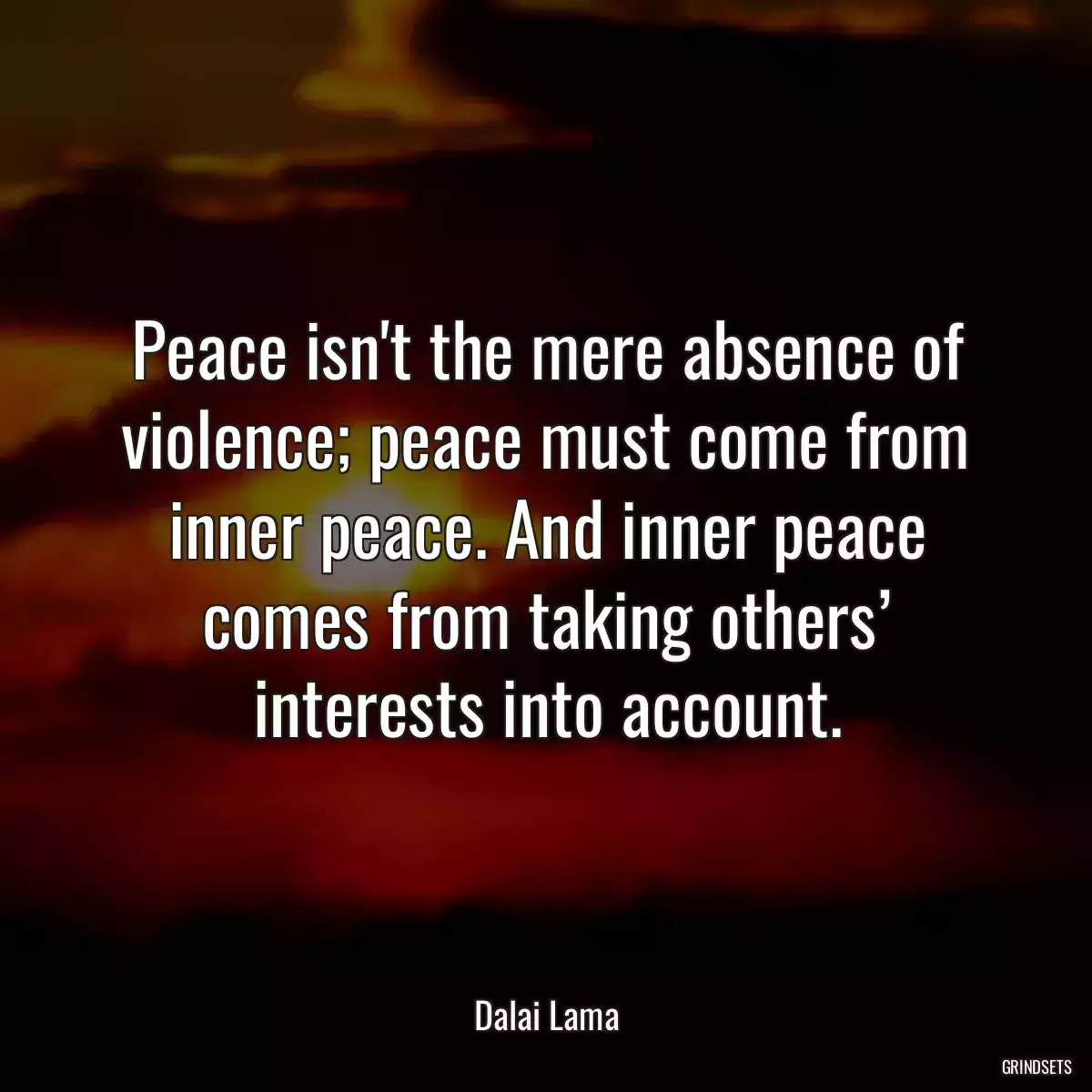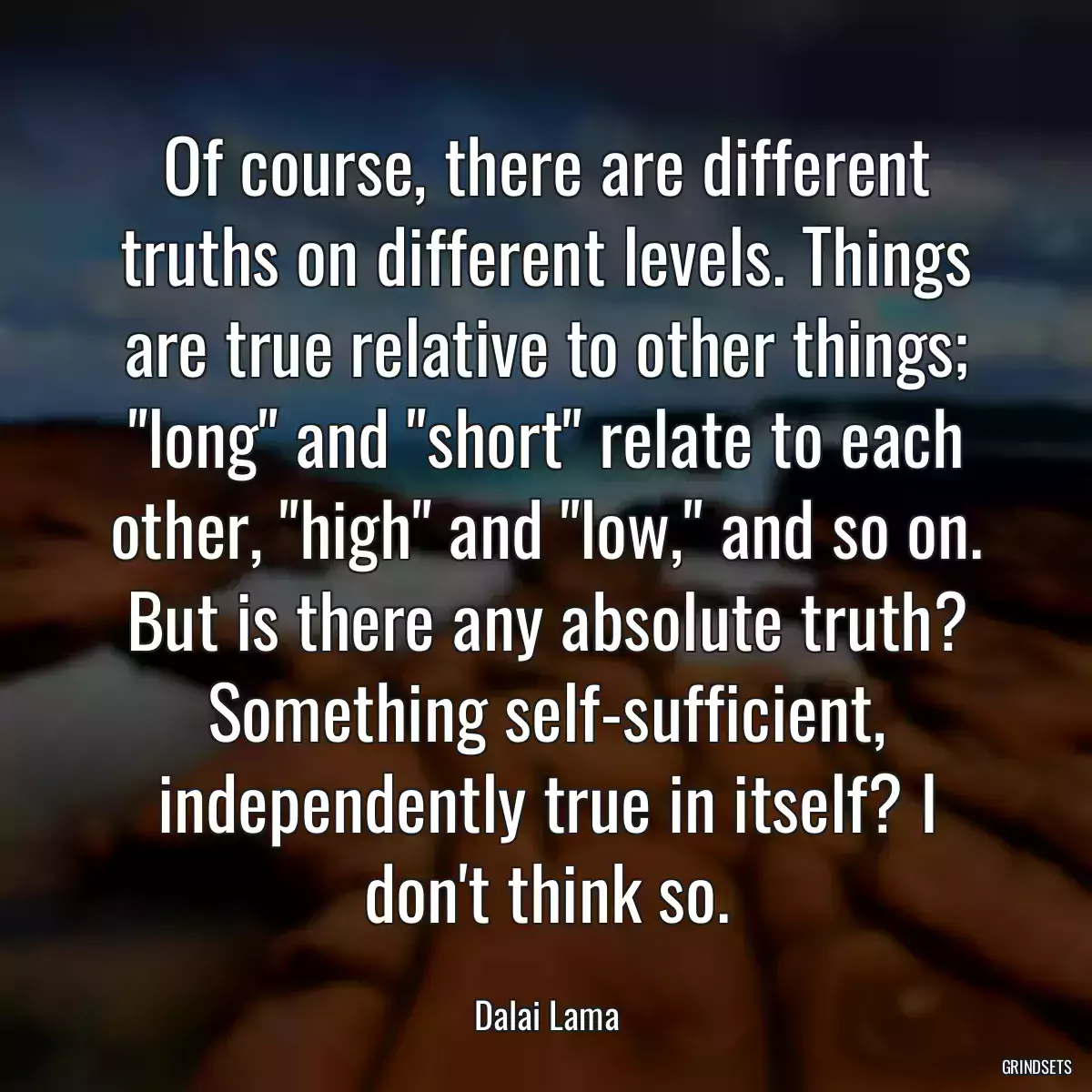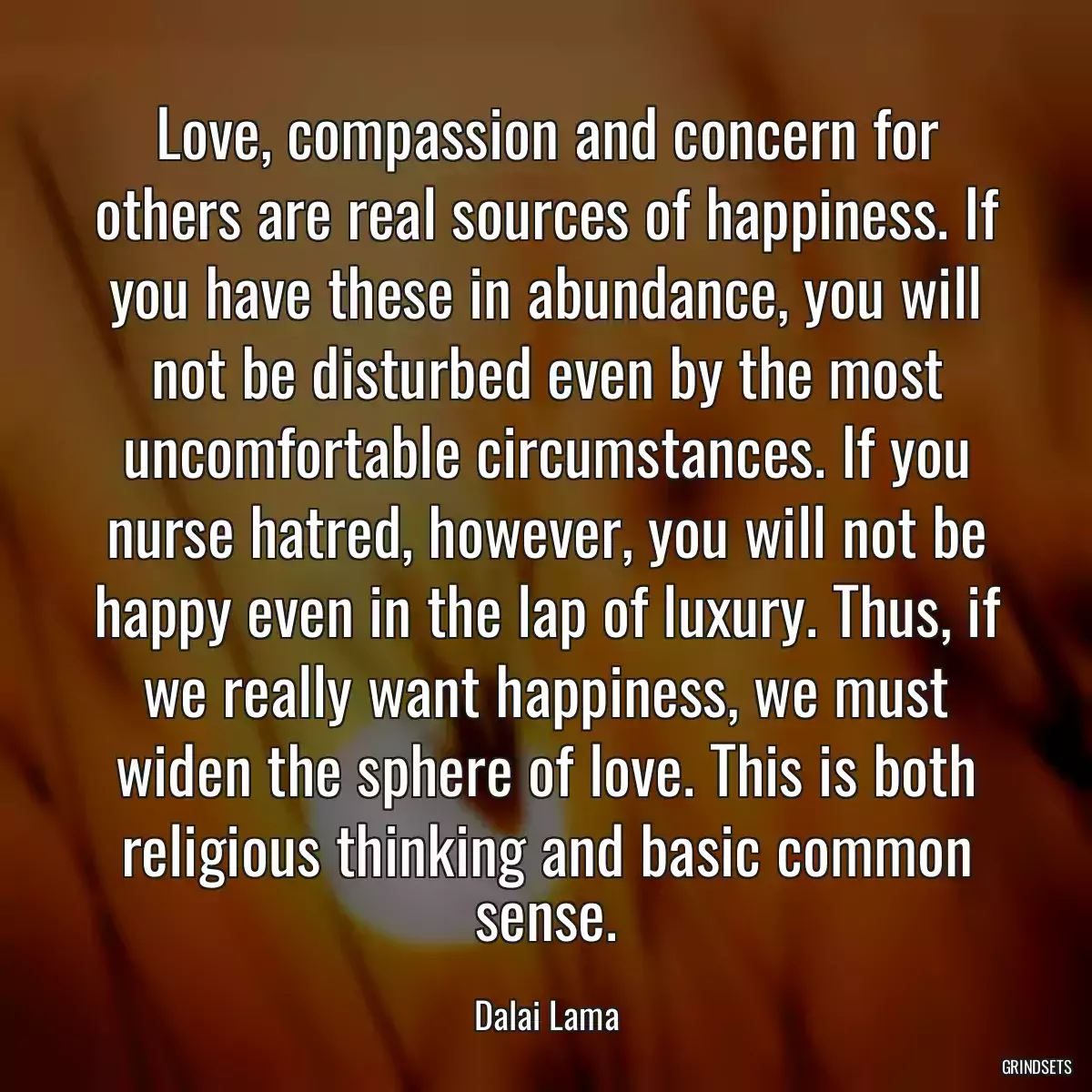
Quotes Dalai Lama - page 7
Find dozens of Dalai Lama with images to copy and share.

Peace is not just the mere absence of violence or disturbance. It's when there is a possibility of conflict, but you deliberately avoid violence and adopt methods to solve the problem through peaceful means. That is real peace.
Inner disarmament, external disarmament; these must go together, you see. Peace is not just mere absence of violence - genuine peace must start in each individual heart.
World peace must develop from inner peace. Peace is not just mere absence of violence. Peace is, I think, the manifestation of human compassion.
You may also like
Peace, in the sense of the absence of war, is of little value to someone who is dying of hunger or cold. It will not remove the pain of torture inflicted on a prisoner of conscience. It does not comfort those who have lost their loved ones in floods caused by senseless deforestation in a neighboring country. Peace can only last where human rights are respected, where the people are fed, and where individuals and nations are free.
Peace does not mean an absence of conflicts; differences will always be there. Peace means solving these differences through peaceful means; through dialogue, education, knowledge; and through humane ways.
Try to remain truthful. The power of truth never declines. Force and violence may be effective in the short term, but in the long run it's truth that prevails.
From the viewpoint of absolute truth, what we feel and experience in our ordinary daily life is all delusion. Of all the various delusions, the sense of discrimination between oneself and others is the worst form, as it creates nothing but unpleasantness for both sides. If we can realize and meditate on ultimate truth, it will cleanse our impurities of mind and thus eradicate the sense of discrimination. This will help to create true love for one another. The search for ultimate truth is, therefore, vitally important.
(Because) the notion of absolute truth is difficult to sustain outside the context of religion, ethical conduct is not something we engage in because it is somehow right in itself but because, like ourselves, all others desire to be happy and to avoid suffering. Given that this is a natural disposition, shared by all, it follows that each individual has a right to pursue this goal. Accordingly, I suggest that one of the things which determines whether an act is ethical or not is its effect on others' experience or expectation of happiness.

You have to start giving first and expect absolutely nothing.
The only "definitive truth" for Buddhism is the absolute negation of any one truth as the Definitive Truth.
Buddha himself taught different teachings to different people under different circumstances. For some people, there are beliefs based on a Creator. For others, no Creator. The only "definitive truth" for Buddhism is the absolute negation of any one truth as the Definitive Truth.
Appearance is something absolute, but reality is not that way - everything is interdependent, not absolute.
I am a steadfast follower of the doctrine of non-violence which was first preached by Lord Buddha, whose divine wisdom is absolute.
On the philosophical level, both Buddhism and modern science share a deep suspicion of any notion of absolutes, whether conceptualize as a transcendent being, as an eternal, unchanging principle such as soul, or as a fundamental substratum of reality. ... In the Buddhist investigation of reality, at least in principle, empirical evidence should triumph over scriptural authority, no matter how deeply venerated a scripture may be.
The feeling of being happy or unhappy rarely depends on our absolute state, but on our perception of the situation, on our capacity to be satisfied with what we have.
The real test of compassion is not what we say in abstract discussions but how we conduct ourselves in daily life.
You may also like

Love, compassion and concern for others are real sources of happiness. If you have these in abundance, you will not be disturbed even by the most uncomfortable circumstances. If you nurse hatred, however, you will not be happy even in the lap of luxury. Thus, if we really want happiness, we must widen the sphere of love. This is both religious thinking and basic common sense.
A great rock is not disturbed by the wind; the mind of a wise man is not disturbed by either honor or abuse.